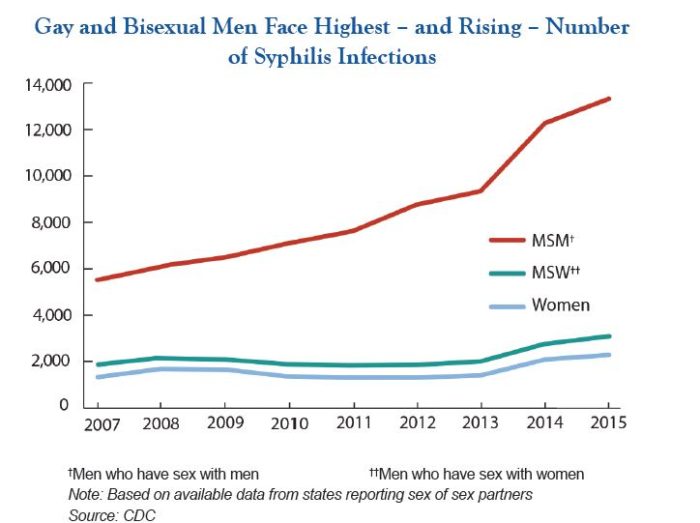MSM Sexual Health Standards of Care
In partnership with NASTAD and NNPTC, this resource expands on the 2015 STD Treatment Guidelines.

- MSM Standards of Care pdf
- Dear Colleague pdf
Please read the Dear Colleague Letter from NCSD, NASTAD, and NNPTC.
The National Coalition of STD Directors (NCSD) and the National Alliance of State and Territorial AIDS Directors (NASTAD) convened a Blue Ribbon Panel of experts from
academia, city and state health departments, the Centers for Disease Control and Prevention (CDC), and the National Network of STD/HIV Prevention Training Centers (NNPTC) to develop optimal standards of client-focused clinical care for
gay, bisexual, and other men who have sex with men (MSM). These standards illustrate the highest quality of sexual health care for MSM, expanding beyond federal guidelines to incorporate the collective experience of experts in the field of
sexual health.

This image is taken from the NASTAD/NCSD toolkit, Addressing Stigma: A Blueprint for Improving HIV/STD Prevention and Care Outcomes for Black and Latino Gay Men. It illustrates how stigma prevents Black and Latino MSM from achieving viral suppression.
Implementation of quality sexual health care must be set in the context of social determinants of health. Clinical environments and systems should be thoughtfully designed to be inclusive of lesbian, gay, bisexual, and transgender (LGBT) patients and patients of all races and ethnicities. Clinic staff, from receptionists to clinicians, should be trained and assessed for LGBT inclusivity in their interactions with patients.
Implementation of quality sexual health care must be set in the context of social determinants of health
MSM Standards of CareScreening should occur at least annually, and every three to six months for sexually active MSM with multiple partners. The recommendations of the Blue Ribbon Panel suggest that providers offer the following to all of their gay, bisexual, and other MSM patients. Please note that this document is focused on cisgender men who have sex with cisgender men. Some of the material may also apply to transgender women, depending on their sexual practices they engage in. Whitman-Walker Health has an excellent document to guide sexual health conversations with transgender patients.
